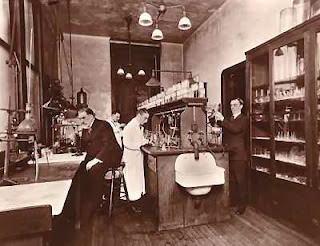What could be better than reading about reading? Let me tell you: reading about a woman who made it her goal to read one book every day for a year. Yes, you have done the math correctly, 365 books.And we're not talking picture books, although that would be a worthy endeavor in its own right. When I say books I mean 300-500 pages.
After losing her sister to cancer, Nina Sankovitch found grieving difficult and was plagued by guilt and fear. She chose the best method she knew to remedy it, and delved deep into the printed page. Tolstoy and the Purple Chair traces her year from the day she spent reading Dracula to see if she could read a novel in a day, to the day she finished off her last day's book. Filled with observations about bereavement and family and books and life in general, this book is well worth your attention. (I will add a disclaimer about a chapter about how reading affects her romantic relationship with her husband)
I'm not sure how it happened, but I've read more than usual about grief this year, from this book to A Grief Observed (if you haven't yet, I repeat, read it) to short stories about the subject and so on. Even though I haven't lost anyone close to me in a long time, it is comforting to see how the written word (whether writing it or reading it) can help connect us back to our lives and work through the process of recovering after a loved one dies or leaves or is simply no longer there. We are made to be creative, and working in that can bring us comfort and hope, whether that be through reading and writing or music or art.
I am a big fan of Ted Talks, and I'll leave you with one of my favorites.

